Namen: Stunde: ______ Datum: Verben Verbs are the part of the
Werbung
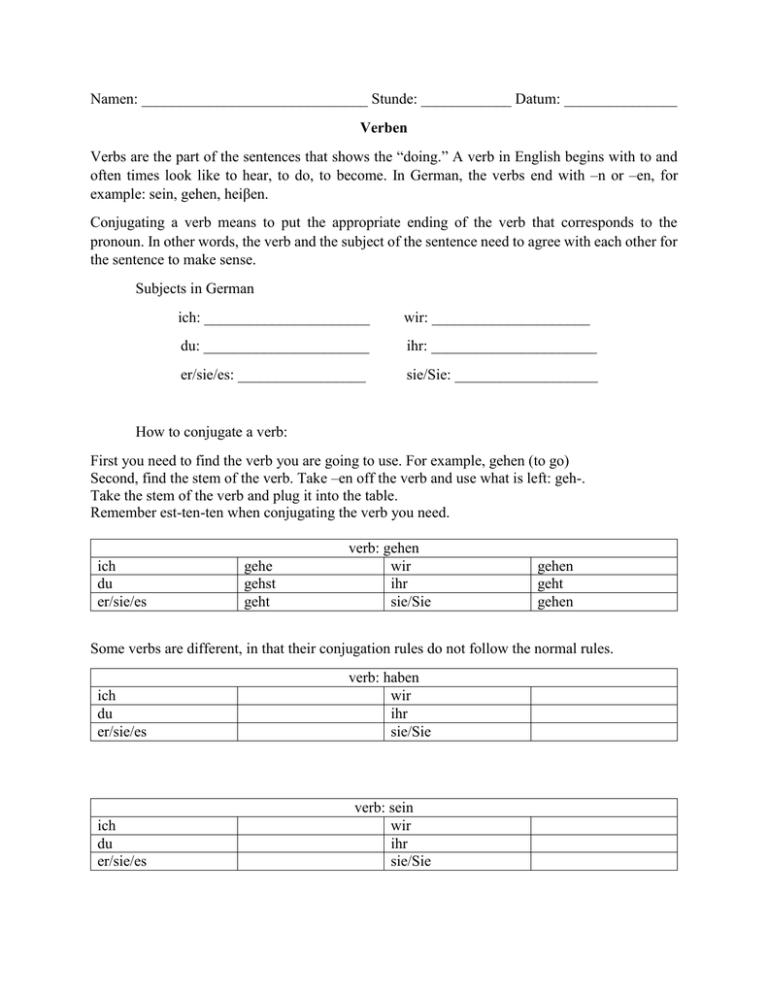
Namen: ______________________________ Stunde: ____________ Datum: _______________ Verben Verbs are the part of the sentences that shows the “doing.” A verb in English begins with to and often times look like to hear, to do, to become. In German, the verbs end with –n or –en, for example: sein, gehen, heiβen. Conjugating a verb means to put the appropriate ending of the verb that corresponds to the pronoun. In other words, the verb and the subject of the sentence need to agree with each other for the sentence to make sense. Subjects in German ich: ______________________ wir: _____________________ du: ______________________ ihr: ______________________ er/sie/es: _________________ sie/Sie: ___________________ How to conjugate a verb: First you need to find the verb you are going to use. For example, gehen (to go) Second, find the stem of the verb. Take –en off the verb and use what is left: geh-. Take the stem of the verb and plug it into the table. Remember est-ten-ten when conjugating the verb you need. ich du er/sie/es gehe gehst geht verb: gehen wir ihr sie/Sie gehen geht gehen Some verbs are different, in that their conjugation rules do not follow the normal rules. ich du er/sie/es verb: haben wir ihr sie/Sie ich du er/sie/es verb: sein wir ihr sie/Sie When using verbs in a sentence, always remember that the verb comes second. Examples: Ich kaufe ein Haus. (I buy a house or I am buying a house) Er geht nach Haus. (He goes home or he is going home) If you look at the above sentences, you will notice that the verb always comes second. It is crucial to remember this because without the verb the sentence would not make sense. The subject can go in the first place, but something can also get replaced with an adverb or something else. Examples: Er ist heute in Berlin (He is in Berlin today) Heute sind Sie in der Stadt. (Today you are in the city) Practice: 1. Karl ________________ in der Stadt (sein) 2. Frau Brenner _______________ in Hambrug. (sein) 3. Ihr _______________ aus Berlin. (kommen) 4. Sie (pl.) _______________ mit dem Zug. (fahren) 5. Ich ______________ mit Hans. (gehen) 6. Du ________________ eine Schwester. (haben)
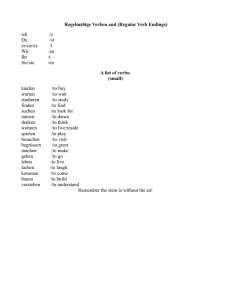
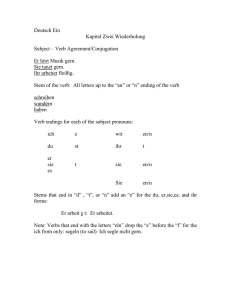
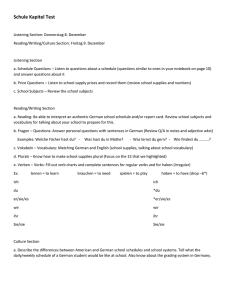
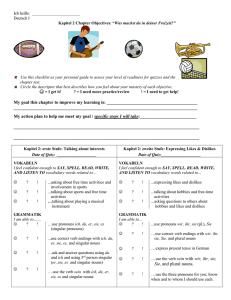

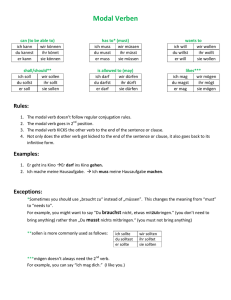
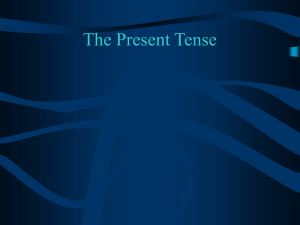
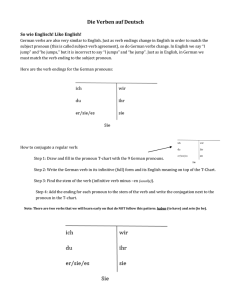
![D1A70204 Befehlformen [Command Forms] Commands (Befehle](http://s1.studylibde.com/store/data/006295093_1-ded304d13987e352eae01a2a5fa30f24-300x300.png)
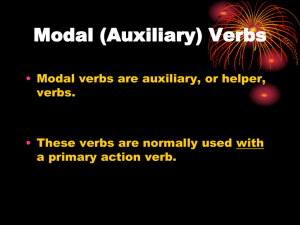
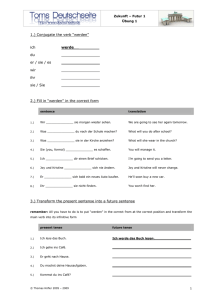
![D1A5 Starke Verben [Strong Verbs]](http://s1.studylibde.com/store/data/005537802_1-7c1b99dd5766654382e175dbf31adcce-300x300.png)